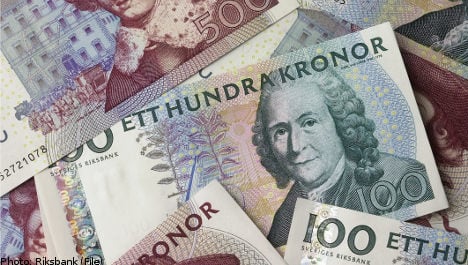The krona, as well as the Norwegian krone, are more overvalued than they’ve been at any point in the last 40 years, the Bloomberg news agency reports.
“Those currencies need to depreciate,” Peter Von Maydell, head of foreign-exchange strategy at Credit Suisse Securities in London, told Bloomberg.
Last week, the Riksbank cut Sweden’s benchmark interest rate, the repo rate, by 0.25 percent to 1.50 percent, amid concerns about weak exports.
The bank’s acknowledgment that the rising krona may have hurt Swedish exports marks a reversal from late 2010, when Riksbank governor Stefan Ingves had rejected calls to manage the rising krona as spooked investors sought safety with the Swedish currency due to uncertainty about the future of the euro.
“We have a uniquely strong economic development in Sweden,” Ingves said in late 2010.
But the Riksbank has now cut rates at two consecutive meetings, and made several downward adjustments to its forecast for future interest rate levels.
Among the reasons cited for the Riksbank’s February 16th rate cute was “sluggish growth in the euro area” which had depressed demand for Swedish exports.
According to Bjoern-Roger Wilhelmsen, chief interest-rate and currency strategist at Swedbank in Oslo, “there are limits” to how much the Swedish krona can appreciate before the Riksbank would be forced to enact monetary policy responses to keep the currency’s value in check.
As the Swedish krona is one of the least traded currencies, it is more sensitive to sudden swings, meaning that a depreciation could quickly become more severe should institutional investors decide to dump krona-denominated holdings.



 Please whitelist us to continue reading.
Please whitelist us to continue reading.
Member comments